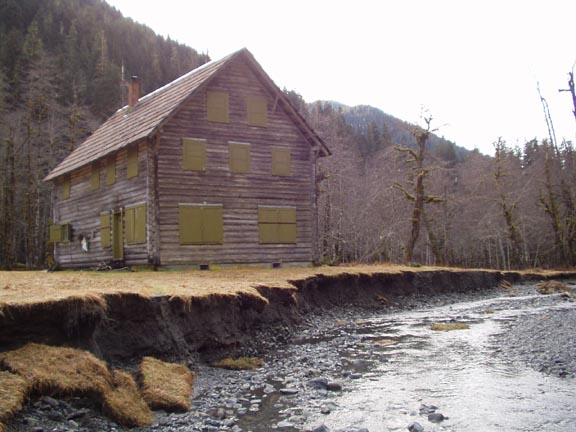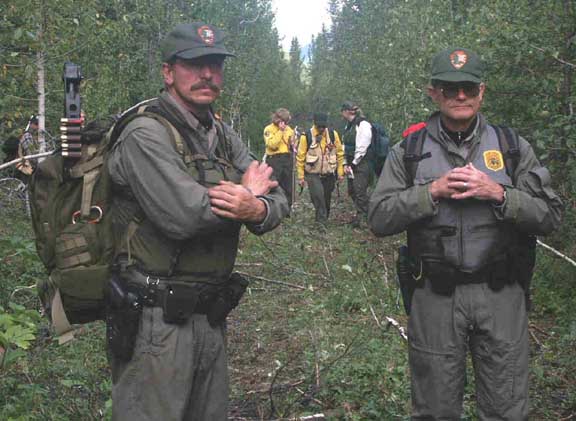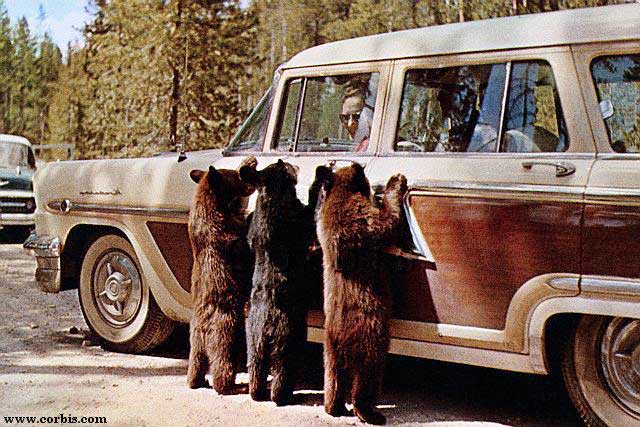A little controversy, not for the thin skinned.
How to drink and drive and get away with it
BY BRUCE RUSHTON
Cherry lollipop? Check.
Eye patch? Check.
Bandage on knee? Check.
Loaf of bread open on the passenger seat, next to a half-empty bottle of Scope? Check.
Bag of groceries with disposable diapers on top? Check.
Driver's license, registration and proof of insurance within easy reach? Check.
Cell phone turned off and put away? Check.
Taillights, brake lights and turn signals working properly? Check.
You're now ready to head for the bar.
You won't be taking a taxi home tonight. A cab ride might cost only $25, but you'd have to pay again tomorrow morning to retrieve your car. That money is better spent on booze.
Sure, this is a gamble, but you're playing the odds. And with so many ill-prepared drunks on the roads, the odds are in your favor.
If this was Vegas, you'd empty your bank account to make this bet.
No one likes drunk drivers. They kill. They maim. They destroy lives.
But what is drunk? During the Nixon administration, the legal limit in most states was .15. Then it became .10. In July, Delaware became the 50th state to pass a .08 limit, which Arizona adopted six years ago.
"This .08 thing is a load of crap and it pisses me off," says Theodore Agnick, a Tempe defense attorney who specializes in DUI cases. "We don't want -- and I'm sure you don't want -- somebody who's hammered who's going to run into a wall out there. But these .08s?
That's a regular person. Instead of patrolling at night looking for people who pose a risk to you and me, they're in front of a bar pulling people over right and left to generate numbers. It has nothing to do with making it safe."
Research backs Agnick. You may not be as good a driver at .08 as you are sober, but three academic studies have shown you're less dangerous than someone who talks on a cell phone while driving. There's scant evidence that .08 has lowered the highway death toll, which has remained essentially flat during the past decade. The General Accounting Office said so in a study refuting claims by the National Highway Transportation Safety Administration. Even Candace Lightner, MADD founder who left the group in the 1980s, has told the media that the focus should be on .15 or higher.
In Arizona, you'll pay a higher fine for drunken driving than you will for running over someone on a bicycle, even if the cyclist dies. But the zealots aren't going away. Neither are local cops, who earn as much as $120,000 a year busting drunks, then racking up overtime in court and license revocation hearings. Just in time for the extension of bar hours to 2 a.m., the Phoenix Police Department has changed shifts for DUI officers, who arrested 3,425 drivers during the past year while working four days a week. Now, they're on the road five days a week.
It's easy to get pulled over. Police acknowledge that obeying every traffic law is virtually impossible. "Have you seen the state traffic code? It's that thick," says Detective Rob Krautheim, Chandler police spokesman. "I could probably get pulled over without knowing I did anything wrong."
So a drunk must learn to be careful out there. Hopping in your car, driving well and hoping for the best won't work. Educate yourself, realize what lies in store if you're pulled over, and be prepared.
And cheers.
You've chosen your watering hole carefully. It's just a few blocks from a series of subdivisions that, navigated properly, will get you most of the way home without venturing onto main drags that will soon be crawling with drunks and cops looking to pull them over. You've scouted the route, so you know which roads end up as cul-de-sacs and which take you toward your destination. At no point will you be driving more than two blocks on a main thoroughfare.
Sober and safe, you take the main roads to the bar. No guarantees where the cops will be at closing time, but it's a good idea to take note of where they are before your first cocktail.
The bar parking lot is half-full when you arrive, but you continue on to a nearby supermarket that's even closer to the side streets. You've heard too many hard-luck tales from drunks busted by cops who just happened to be outside the bar at closing time. Besides, the walk back to your car will do you good.
You note the time as you order your first drink. And it is a drink, not a beer or a glass of wine. Fermented beverages produce the strongest odor of alcohol. Briefly, you consider the merits of Crown Royal or Bombay, but you are disciplined.
You're sticking with Absolut. It's the flavorings in booze that make you smell like a distillery. Vodka, especially premium brands, provides the highest safety margin.
You know from studying blood-alcohol charts that a person your size should be able to have three drinks in the first hour without going over the legal limit. You also know the body burns off alcohol much slower than it absorbs it -- approximately one drink per hour will disappear from your system. You do the math in your head as you take your first sip. You plan on being here for three hours. The charts say you can have nine and still be comfortably below the .15 threshold that spells a mandatory 10 days in jail; there's always a chance you could lose this bet, so you should hedge a bit. You know the charts are only a rough guide. Your maximum tonight is eight. You ask the bartender to set you up a tab -- better to have two people counting than one.
You watch the baseball game, shoot pool with friends, flirt with the barmaid. Just before the kitchen closes, you order a basket of fries to help sop up your final drinks and slow their journey into your bloodstream. You also start drinking water. You don't want to risk the head-swimming effects of dehydration on top of an alcohol buzz. Every time you go to the rest room, you stand on one leg in the stall after relieving yourself, gauging your ability to keep your balance.
Over at the dartboard is a group of shit-faced drunks. They're loud, singing along with the jukebox, spilling drinks and stumbling as they walk from their table to the board. You don't know them, but they are your best friends as closing time approaches. You will make your escape just after they leave. If a cop is lurking outside, they can be the ones who get arrested, not you.
Finally, it is time to go.
Instead of walking directly to your car, you go behind a building -- not the bar, which cops may be watching -- and practice field sobriety tests where no one can see you. This is the evening's first moment of truth. How well you do in these practice tests will determine how you'll respond if a cop pulls you over, or whether you'll even risk the drive home. You know these tests by heart, having included them in your daily exercise regimen.
Even though you're legally drunk, you easily stand on one leg for 30 seconds and walk heel-to-toe in a straight line for nine steps. Confidence buoyed, you head for your car.
Once at your car, you put a bandage over one knee. If you do poorly on a sobriety test, your lawyer can blame it on an injured leg. You comb your hair and tuck in your shirt. A police officer will note your appearance if he pulls you over, and disheveled is bad.
You have your eye patch ready to put in place. You don't want an officer examining your eyes, because nothing will prevent involuntary reflexes that signal drunkenness. If you've been smoking pot, start sucking on that lollipop -- a green or brown tongue is evidence of marijuana use, which is just as bad as drunken driving under Arizona law. Your bag of groceries in the back seat will serve as an alibi: "No, officer, I wasn't at a bar. I was just picking up a few things at the store."
You fasten your seat belt and prepare for departure. Are your headlights on? Treat the high-beam switch as if it's electrified. Under no circumstances will you use it.
With the cruise control set precisely at the speed limit, you have one less thing to worry about as you begin your journey. You will signal every turn, even though the streets are empty, and concentrate on keeping a straight line, which shouldn't be too difficult. You're not plastered -- if you are, you shouldn't be behind the wheel -- but you're certainly above the legal limit.
Oh, shit! A cop lights you up as soon as you turn onto Camelback Road, a favorite hunting ground for Phoenix police. How could this be? Knowing that cops key on drivers who make wide turns -- they learn in training that there's a 65 percent probability that a driver who turns wide is drunk -- you turned as close as possible to the edge of the roadway.
But you didn't come to a complete stop before crossing the sidewalk, as required by the state traffic code. Try to relax. The cop isn't going to automatically conclude you're drunk as he approaches your car. Smelling like booze doesn't mean your case is open and shut.
The officer will take note of things that seem trivial. Did you stop right away or did you continue for several blocks before surrendering? Not stopping as soon as possible is a sign of drunken driving, according to the National Highway Transportation Safety Administration.
The officer will watch closely as you retrieve your license, registration and insurance card. He's looking for you to fumble around, maybe drop something, which is why you've put your paperwork within easy reach. While you're getting your license, the officer will ask you a question -- could be about the weather, could be about just about anything, including whether you've had anything to drink. Don't be caught off guard. The theory is, drunks can't focus on two things at once, so if you can't respond to his query while retrieving your papers, you may soon find yourself in handcuffs.
At some point, he's going to ask how much you've had to drink. The "couple beers" answer isn't going to play. Some free advice: "The minute the cop asks you if you've had anything to drink, at that point, he's gathering evidence against you," says Ed Loss, a Phoenix DUI attorney. "Shut the fuck up."
The officer will ask you to blow into a hand-held breath tester. Say no. The results aren't admissible in court because hand-held testers aren't considered reliable. But the cop isn't going to tell you that. He's relying on you to either follow directions from a police officer, like the good citizen you are, or assume that you'll automatically lose your license for a year if you refuse (which is true for tests required after the arrest is made). Blame your recalcitrance on a distrust of technology. Ask the officer how that doohickey works and whether you're required to submit. When he says you're not, politely decline.
The cop will ask you to perform some field sobriety tests. He needs enough evidence to make an arrest, and he may not have it yet, especially if you don't reek of alcohol and he stopped you for something minor like a broken taillight.
The tests are easy to flub, particularly if you're nervous or naturally uncoordinated. Sober people often don't perform well. The tests have one thing in common with driving: The more you do it, the better you get. That's why intoxicated drivers aren't obvious on the roadway, but completely fall apart when asked to stand on one leg or do something else that they never do in real life.
Too bad if you make a mistake. Given that practice improves performance, the cops don't allow do-overs. Most defense lawyers say you shouldn't do the tests, but declining can be awkward and look suspicious, especially if you've just said no to a breath test. So you face a crucial decision: You can refuse and limit the evidence that can be used against you if you're arrested and take the case to court. Or you can roll the dice, banking that you'll pass and convince the officer that you're okay to drive.
The federal government has certified just three sobriety tests as accurate in determining whether a person is intoxicated.
They include:
• Horizontal gaze nystagmus, or HGN.
This is the one where the officer puts a pen in front of your face and asks you to follow it with your eyes as he moves it from side to side. He's looking for your eyeballs to jerk. With an 83 percent accuracy rate, this is the most accurate field sobriety test on the planet, and the police officer isn't going to care that the jerking occurs naturally in some people or that some substances, including nicotine, may exacerbate the jerking effect, as do some diseases, including syphilis. Practice won't help, nor will a high tolerance to alcohol. It is, therefore, a test to be avoided.
But how to say no? The test is not valid if a person has just one eye available. Remember at the beginning of this story, where we talked about having an eye patch ready? You might also tell the officer about that pesky tic that causes your eyes to blink involuntarily; blinking can be caused by anti-psychotic drugs, Tourette's syndrome and a host of other disorders. Or you can keep something handy to put into one of your eyes, say, mascara or a cigarette ash, which forces blinks and also explains your bloodshot eyes.
• The one-leg stand.
An officer will ask you to stand on one leg, arms at your side, and count to 30 out loud. The feds say this test is 65 percent accurate in identifying drunks. However, it's not valid if a person is more than 50 pounds overweight. Nor should it be given if the person has a leg or back injury. Consider limping or groaning in pain as you step out of the car. When the officer asks you if you have any injuries -- and he should, before administering the test -- tell him about that tumble you took from your bicycle yesterday.
• The walk-and-turn.
You will be asked to walk heel-toe in a straight line for nine steps, arms at your sides, then pivot and walk back to the officer in the same fashion. The walk-and-turn is 68 percent accurate in pegging drunks. As with the one-leg stand, it isn't valid if you're fat or injured.
If you decide to do the tests, listen carefully when the officer gives the instructions. The officer will tell you to start when he wants you to begin. This part of the instructions will not be emphasized, but it is crucial. You are allowed just one mistake. Starting before being told to begin counts as that one mistake. Make it and you have no margin for error.
Figure out which sobriety tests you're best at and steer the cop toward them. Police do have back-up tests; how else would they be able to test paraplegic motorists? A finger-dexterity test in which the suspected drunk sequentially touches fingertips to thumb is easy to master. First touch your index finger to thumb, then middle finger, then ring, then pinkie, counting each touch out loud: "One, two, three, four." When you reach the end, touch the pinkie again and do it in reverse order, this time counting backward: "Four, three, two, one." Using the hand that's not holding your drink, you can practice all night long without anyone noticing.
There's a risk to field sobriety tests even if you haven't been drinking. If you don't do well and a breath test shows you have little or no alcohol in your system, the police will look for drugs. You'll be asked to undergo an examination by a so-called drug recognition expert who's supposed to be able to tell whether you're high and, if so, what drug you're on.
You're not required to submit to this examination, but you can be ordered to provide a urine sample. And, as any pot smoker who's sweated a pee test knows, the test can come back positive even if you weren't stoned at the time you peed.
Urine tests don't measure drugs. Rather, they measure metabolites, which are by-products produced as the body processes controlled substances. In the case of marijuana, metabolites can linger as long as 30 days after the last puff. Cocaine, heroin and methamphetamine metabolites disappear within three days.
Under Arizona law, you're guilty of DUI if you have a metabolite in your system, even if you're not under the influence. "It's a situation where if you've smoked pot in the last 30 days, even if you haven't in the last two weeks, you're still going to get the DUI for that," says Daniel Jaffe, a Scottsdale DUI lawyer. "It really happens. At any given time, I have a case like that."
All right. You've really blown it. You weren't driving terribly, but you flunked the field sobriety tests and got arrested. Maybe you puked and peed your pants in the patrol car. Now it's time for the most important test of all: the blood-alcohol test, which will be given at a police station or a van set up to process DUI suspects.
If you got busted in Chandler, Gilbert, Mesa, Tempe or Scottsdale, you picked the wrong town to drink and drive in. Police in these cities are licensed phlebotomists, and they have their own blood labs. A blood test is considered the most accurate way of determining a person's blood-alcohol level. If, for some reason, they take you to a hospital for the blood test, count your blessings. A hospital won't draw blood if you don't sign a liability waiver that says you won't sue anybody for any reason. In the eyes of the state, you haven't refused a test, so you won't lose your license.
If you got picked up by a state trooper or a Phoenix officer, you'll be blowing into a machine called the Intoxilyzer 5000, which is a defense attorney's delight.
The machine has a 10 percent margin of error, so if it shows you have a .08 blood-alcohol level, you may actually be below the legal limit. A jury might be interested in hearing that you'd just eaten a sandwich. Bread has been shown to inflate breath alcohol readings, as has mouthwash.
The bottom line is, police who use breath tests are doing you a favor. A good DUI lawyer can convince a jury that the results are wrong, especially if it's a borderline case.
Refuse a breath test and you'll find yourself in deeper trouble. Police will call the county jail, where a judge is on duty 24/7, and get a search warrant to draw blood. If necessary, they'll strap you to a chair. They'll then have evidence that's tough to beat in court, and you'll lose your license for a year for refusing the test.
So, how much of this advice might actually work? I decided to get drunk and find out.
Not being cocky, I didn't get soused and hit the highway. I called Ed Loss, the DUI lawyer, who rounded up some experts with Intoxilyzers and a portable breath tester to try the theories. Then I persuaded three co-workers to give it a shot on a recent Saturday morning. Nothing like a drinking binge to start your day.
I was interested in two things: Could I pass the field tests while shit-faced? And what would the breath machines say?
With the Olympic Games as inspiration, I trained. But not too hard, and not too long. Just standing on one leg and walking heel-toe during a few drinking bouts in the days leading up to the main event. I got pretty good. I found out that I was much better at standing on my right leg than on my left, which was good to know, given that the cops let you choose which leg to stand on.
My colleagues didn't prepare at all. It was me against them: Who would do the best on the tests?
The initial results weren't encouraging. Stone sober, three of us, including me, failed at least one of the sobriety tests. Having been up late the night before, drinking, I figured I was just tired. That was why I put my foot down during the one-leg stand. I did not despair. I started drinking.
I gave my colleagues moderate pours of Absolut. I lost track of how much I drank, but it was a lot more than they did. I started with a healthy shot. Then a greyhound. Then another shot. Then more greyhounds. While everyone else was in the living room or out by the pool, I was sneaking drinks in the kitchen. And it showed. I was stirring drinks with my fingers and offering them up. About 90 minutes after we began, my blood-alcohol level was .11, according to the Intoxilyzer. The portable breath tester, however, pegged me at .15.
I tried to hide my smugness as I watched my co-workers fail their tests, even though they weren't legally drunk. The woman who'd passed her tests while sober failed every one, even though her blood-alcohol level was .053 on the Intoxilyzer and .06 on the portable breath test. Then it was my turn.
I aced the walk-and-turn. I failed the one-leg stand, but just barely. Chuck Laroue, a Bisbee private investigator, decreed that my toes weren't sufficiently pointed and that I'd swayed once. He allowed that it was a close call, but he was grading strictly, as an officer would at roadside. "They're looking to fail you," he warned. Using a blank form from the Chandler Police Department, I reviewed the instructions officers must read to suspects before administering the test: Nowhere does it say that a suspect's toes must be pointed.
In any case, my colleagues fared substantially worse than I, even though they weren't over the legal limit. Not surprisingly, I did horribly on the HGN exam. On the plus side, Laroue said none of us smelled strongly of alcohol.
The Intoxilyzer worked -- or didn't work, depending on your perspective -- exactly as billed. Bread registered a .05 when Laroue put a slice in his mouth, but the machine, which is supposed to signal the presence of alcohol in the mouth, rang an alarm. The alarm remained silent, however, when he put Scope in his mouth. According to the machine, this perfectly sober person had a blood-alcohol level of .46, enough to kill most people.
All this looked like convincing stuff for a jury, but no one wants their case to get that far. Better not to get pulled over in the first place and better to fool the cops if you do. I came away convinced a drunkard really does have a chance. All I need is a bit more practice. No more quarters -- instead of traditional drinking games, I'm switching to field sobriety tests: The last one left standing on one leg wins.
Party on.
bruce.rushton@newtimes.com, or call 602-407-1715.






